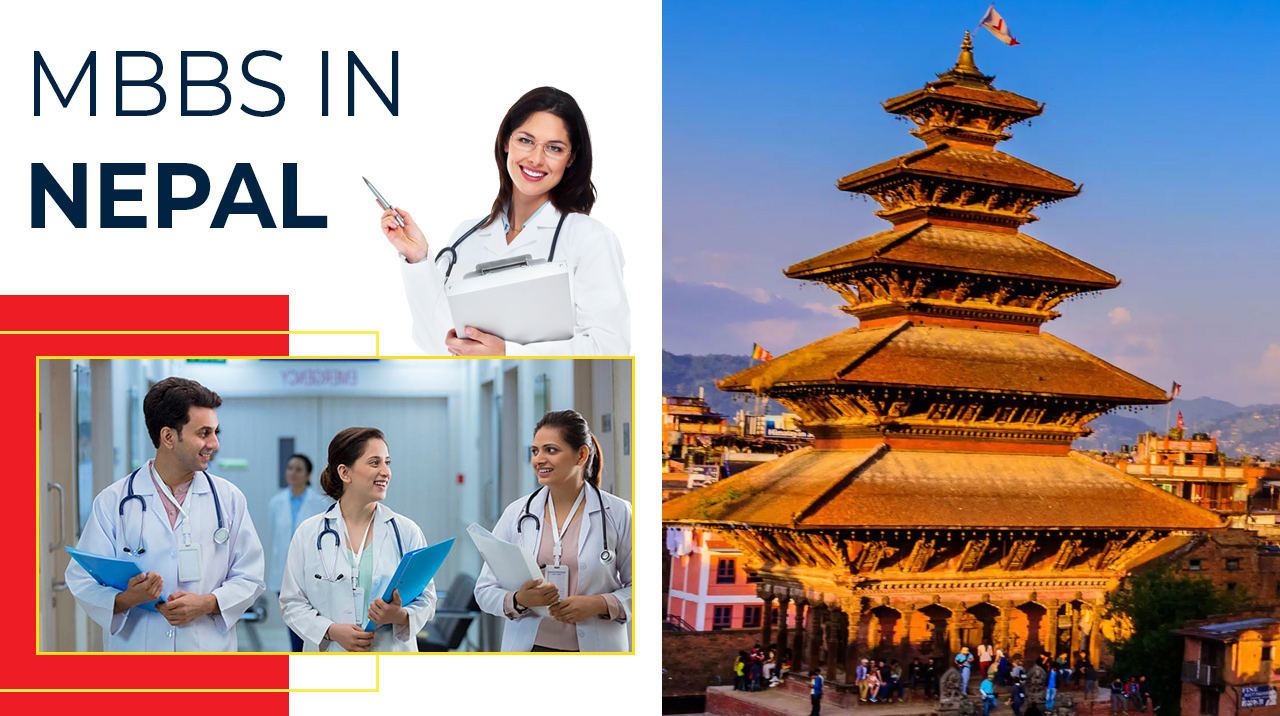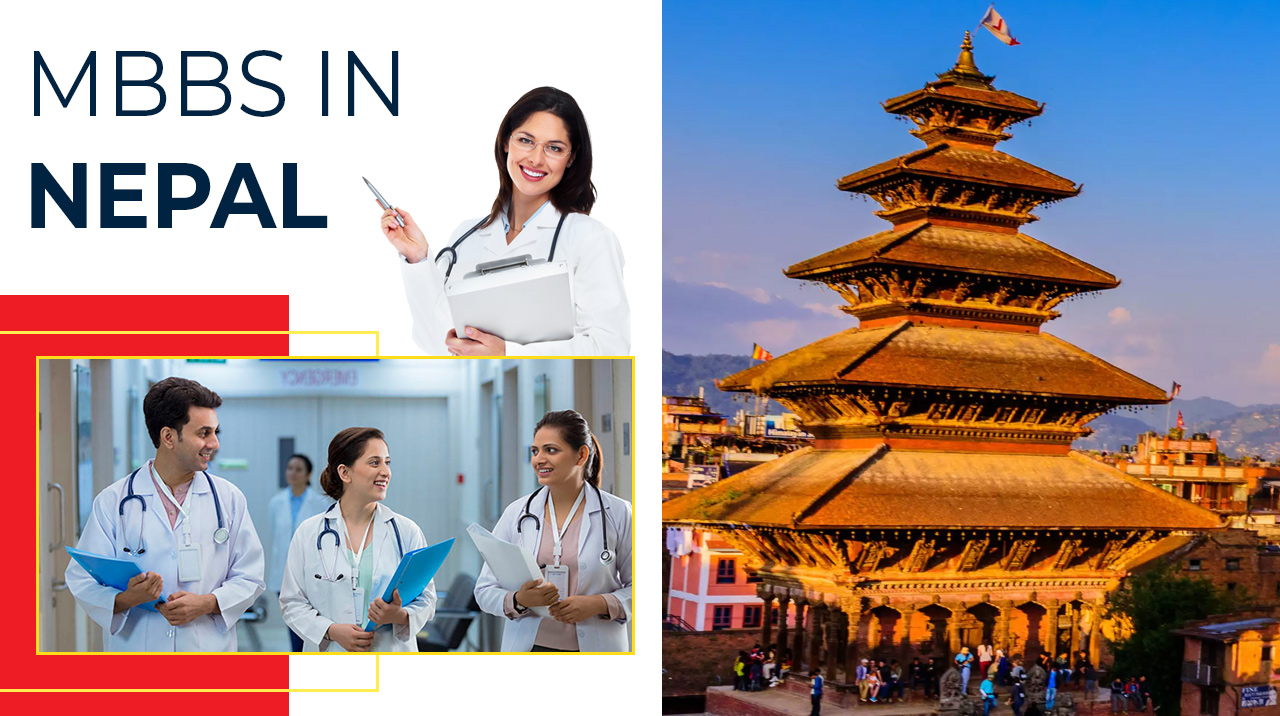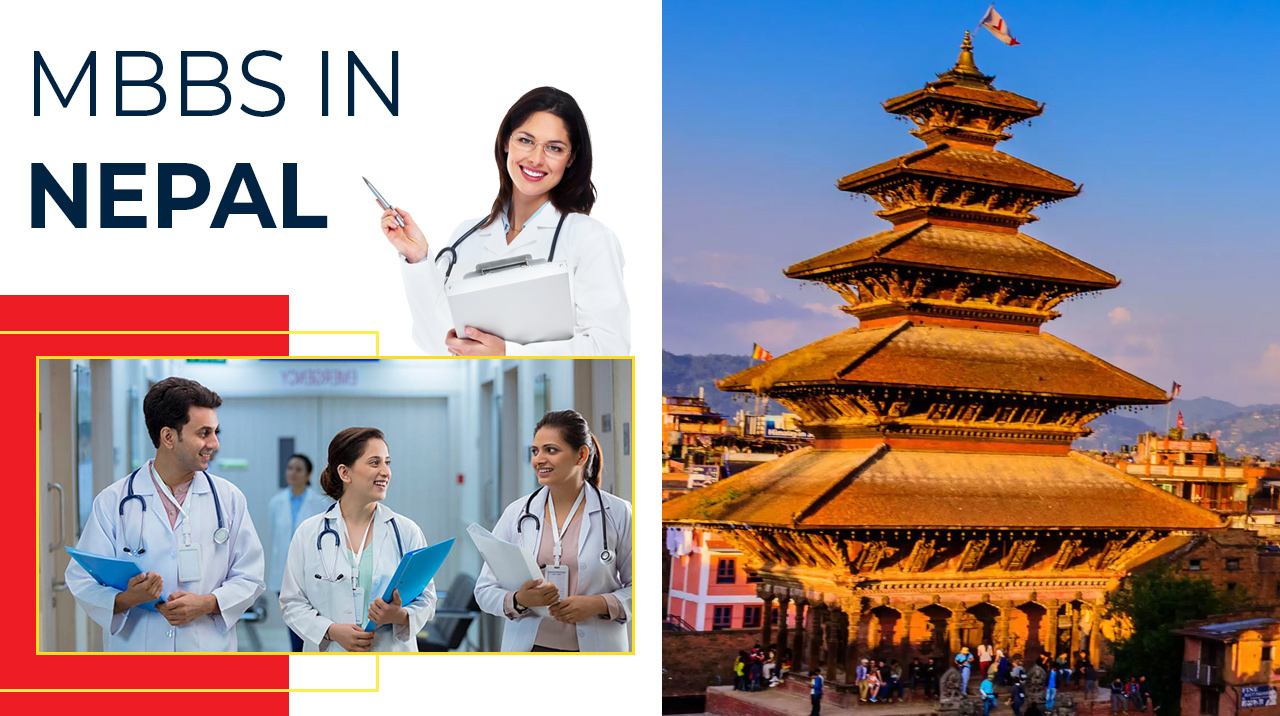MBBS Admission in Nepal for Indian Students: A Complete Guide

Introduction
Nepal has become one of the most preferred destinations for Indian students seeking to pursue an MBBS degree. The country offers world-class medical education at an affordable cost, with an easy admission process and no language barrier. Additionally, the cultural similarities between India and Nepal make it a comfortable destination for Indian students. In this guide, we will cover everything you need to know about MBBS admission in Nepal for Indian students, including eligibility criteria, top medical colleges, fee structure, admission process, and more.
Enquiry Now: 9355910750.
Why Choose Nepal for MBBS?
No Language Barrier – English is the medium of instruction, and Hindi/Nepali is widely spoken.
Affordable Tuition Fees – The cost of studying MBBS in Nepal is much lower than in private medical colleges in India.
MCI/NMC Approved Colleges – Most medical colleges in Nepal are approved by the National Medical Commission (NMC) of India.
No Visa Requirement – Indian students do not need a visa to study in Nepal.
High-Quality Education – Nepalese medical universities follow the same curriculum as Indian medical colleges.
Comfortable Living Conditions – Nepal has a similar lifestyle, food habits, and climate to India.
Eligibility Criteria for MBBS Admission in Nepal
To apply for MBBS in Nepal, Indian students must fulfill the following eligibility criteria:
Academic Qualification – Candidates must have completed 10+2 with Physics, Chemistry, Biology, and English as main subjects.
Minimum Marks Requirement – A minimum of 50% in PCB (Physics, Chemistry, Biology) for general category students and 40% for SC/ST/OBC students.
NEET Qualification – Qualifying NEET (National Eligibility cum Entrance Test) is mandatory for Indian students.
Age Requirement – The student must be at least 17 years old by December 31 of the admission year.
Admission Process for MBBS in Nepal
The admission process for MBBS in Nepal generally follows these steps:
Qualify NEET – Appear for the NEET exam and secure a valid score.
Choose a College – Research and select a medical college in Nepal.
Application Form Submission – Submit the application form along with the required documents.
Entrance Exam (If Required) – Some colleges conduct their own entrance exams for admission.
Merit List & Counseling – Based on NEET score and entrance exam results, a merit list is prepared.
Admission Offer & Fee Payment – Once selected, students must confirm their admission by paying the fees.
Documentation & Visa Process – Indian students only need to submit identification proof (Aadhaar/Passport) for documentation.
Required Documents
Indian students need to submit the following documents for MBBS admission in Nepal:
10th and 12th Mark Sheets & Certificates
NEET Scorecard
Birth Certificate
Passport/Aadhaar Card
Recent Passport-Sized Photographs
Medical Fitness Certificate
Character Certificate
Top Medical Colleges in Nepal for MBBS
Here is a list of some of the top medical colleges in Nepal offering MBBS for Indian students:
Institute of Medicine (IOM), Kathmandu
B.P. Koirala Institute of Health Sciences, Dharan
Manipal College of Medical Sciences, Pokhara
Kathmandu University School of Medical Sciences, Dhulikhel
Patan Academy of Health Sciences, Lalitpur
Nepal Medical College, Kathmandu
National Medical College, Birgunj
College of Medical Sciences, Bharatpur
Lumbini Medical College, Palpa
Nobel Medical College, Biratnagar
All these medical colleges are recognized by NMC (formerly MCI) and follow a curriculum similar to Indian medical colleges.
Fee Structure for MBBS in Nepal
The cost of studying MBBS in Nepal varies depending on the college. The average fee structure is as follows:
Government Medical Colleges – INR 35-50 Lakhs for the entire course.
Private Medical Colleges – INR 45-65 Lakhs for the entire course.
The fees can be paid in yearly installments. Hostel and food charges are additional and may range from INR 1-2 Lakhs per year.
MBBS Course Duration & Curriculum
The duration of the MBBS program in Nepal is 5.5 years, which includes:
Pre-Clinical Phase (1.5 Years) – Subjects include Anatomy, Physiology, and Biochemistry.
Para-Clinical Phase (2 Years) – Subjects include Pathology, Pharmacology, Microbiology, Forensic Medicine, and Community Medicine.
Clinical Phase (2 Years) – Subjects include Medicine, Surgery, Pediatrics, Obstetrics & Gynecology, Orthopedics, Psychiatry, and other specialties.
Internship (1 Year) – A mandatory internship program in hospitals affiliated with the university.
Recognition & Career Opportunities
MBBS degrees from Nepalese medical colleges are recognized by:
National Medical Commission (NMC) India
World Health Organization (WHO)
Medical Councils of Nepal, USA, UK, and Australia
After completing MBBS in Nepal, Indian students can:
Practice in India – Qualify for the FMGE/NExT exam to get an Indian medical license.
Pursue Higher Studies – Apply for PG courses in India or abroad.
Work in Nepal – Apply for a medical license and practice in Nepal.
Work Abroad – Qualify for licensing exams in countries like the USA (USMLE), UK (PLAB), or Australia (AMC).
Student Life in Nepal
Indian students feel at home in Nepal due to its cultural similarities. Some highlights of student life include:
Hostel & Accommodation – Colleges offer hostel facilities with Indian food options.
Climate & Weather – Similar to North Indian weather, with mild summers and cold winters.
Transportation – Well-connected by road and air to major Indian cities.
Festivals & Culture – Indian festivals like Diwali, Holi, and Durga Puja are widely celebrated in Nepal.
Challenges & Considerations
While Nepal is an excellent destination for MBBS, students should consider the following:
Limited Seats – Due to high demand, securing admission in top colleges can be competitive.
Cost Factor – Although cheaper than Indian private colleges, it is still a significant investment.
FMGE/NExT Exam – Indian students must clear this exam to practice in India.
Clinical Exposure – Some colleges may have limited advanced medical facilities; research before choosing a college.
Conclusion
Nepal offers an excellent opportunity for Indian students to pursue an MBBS degree at an affordable cost with high-quality education. With no visa requirements, cultural familiarity, and an English-medium curriculum, Nepal is a top choice for Indian medical aspirants. However, students must ensure they qualify for NEET, choose a recognized college, and prepare for the FMGE/NExT exam if they wish to practice in India. By following this guide, students can make an informed decision about pursuing their MBBS degree in Nepal.
FAQs
Is MBBS in Nepal valid in India?
Yes, MBBS degrees from NMC-recognized colleges in Nepal are valid in India after passing FMGE/NExT.
Do I need a student visa for Nepal?
No, Indian students do not need a visa to study in Nepal.
What is the average cost of MBBS in Nepal?
The total cost ranges from INR 45-65 Lakhs, depending on the college.
Is NEET required for MBBS in Nepal?
Yes, NEET qualification is mandatory for Indian students.
Can I practice in India after MBBS from Nepal?
Yes, but you need to clear the FMGE/NExT exam to practice in India.
Note: IndiBlogHub features both user-submitted and editorial content. We do not verify third-party contributions. Read our Disclaimer and Privacy Policyfor details.







